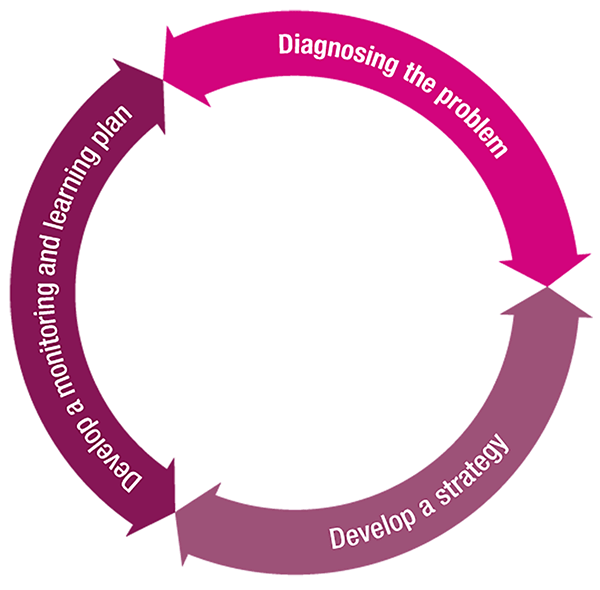For many international development organisations, influencing policy is a critical means to achieve long term change. For over a decade, the Research and Policy in Development (RAPID) team at ODI (now the Digital Societies programme) worked around the world to understand how to foster sustainable policy change. The result is ROMA – the RAPID Outcome Mapping Approach – a guide to understanding, engaging with and influencing policy.
Policy change can take many forms: while changes to legislation are often seen as the most concrete ways of making change happen, in fact public policy comprises many non-legislative issues, such as regulations, resource allocation and decisions about whose voices to include in debates or what evidence to base decisions on.
ROMA is an approach to improving your policy engagement processes, to influence change. It comprises a suite of tools that any organisation can use at any stage in their policy engagement process to improve how they diagnose the problem, understand the types of impact their work could have on policy-making, set realistic objectives for policy influence, develop a plan to achieve those objectives, monitor and learn from the progress they are making and reflect this learning back into their work. This guide to ROMA summarises what the team has learned over the years.
Download the full guide
Chapter 1: What is ROMA?
Chapter 2: Diagnosing the problem
- Defining the problem
- Diagnosing complexity and uncertainty
- Systemic factors: the political and institutional environment
Chapter 3: Developing your engagement strategy
- Identify your policy influence objective
- Develop a set of realistic, stakeholder-focused outcomes
- Develop a theory of how to facilitate change
- Develop your communications strategy
- Identify resources and capacity to implement your activities
- Write your engagement strategy
Chapter 4: From M&E to monitoring and learning
- What to monitor and why
- How to monitor - collecting and managing data
- Making sense of learning and decision-making
